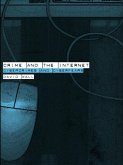Criminology has developed strong methodological tools over the past decades, establishing itself as a competitive, sophisticated, and independent social science. Perhaps because of its emphasis on matters of design, methodology, and quantitative analysis, criminology has had few significant advances in theory. Advances in Criminological Theory is the first series exclusively dedicated to the dissemination of original work on criminological theory.The Process and Structure of Crime, the ninth volume in this landmark series, is a thorough overview of the conceptual and empirical issues raised by the adoption of a criminal event perspective, which takes into account the multifaceted character of human behavior. This book is divided into three sections: conceptual bases of criminal events, the criminal event perspective itself, and responses to criminal events. Contributors analyze and explore a wide range of topics, including: how interpersonal routines are structured through past experience; the influence of social context on interpersonal routines; criminal opportunity and its impact on criminal events; the significance of neighborhood context; the effect of victimization and fear; how problem-oriented policing efforts need to be informed by and reflect the problems of repeat offenders, repeat victims, and hot spots of crime; and finally, how changes in the physical environment constrain or limit criminal opportunities. This fascinating work will be beneficial to criminologists, sociologists, and scholars of legal studies.Contributors to this volume include: Leslie W. Kennedy, Erin Gibbs Van Brunschot, Robert F. Meier, Mark Warr, Christopher Birkbeck, Luis Gerardo Gabaldon, Kriss A. Drass, Terance D. Miethe, Julie Horney, Jeffrey Fagan, Deanna L. Wilkinson, Robert J. Buskirk, Jr., Vincent F. Sacco, Ross Macmillan, John E. Eck, Paul J. Brantingham, and Pat Brantingham.
Dieser Download kann aus rechtlichen Gründen nur mit Rechnungsadresse in A, B, BG, CY, CZ, D, DK, EW, E, FIN, F, GR, HR, H, IRL, I, LT, L, LR, M, NL, PL, P, R, S, SLO, SK ausgeliefert werden.









